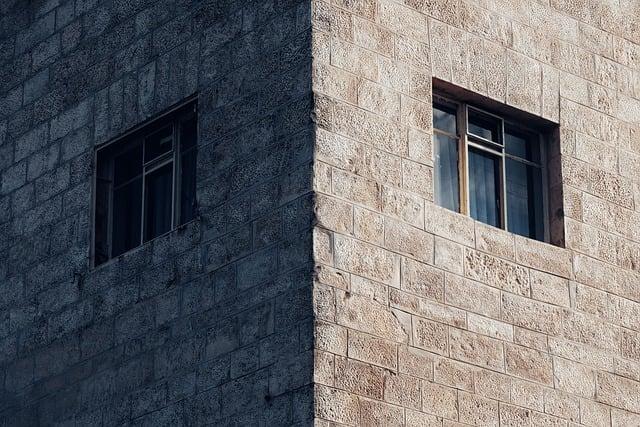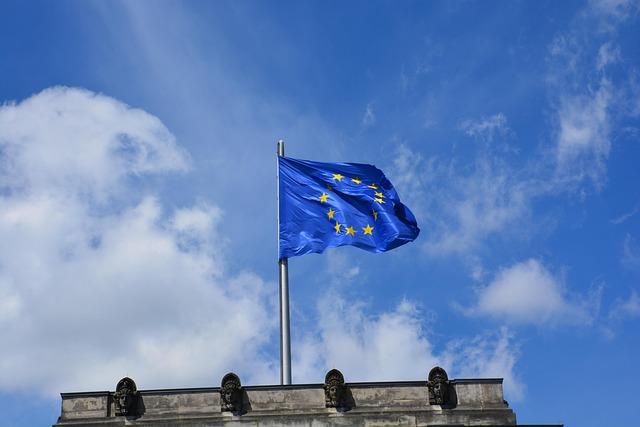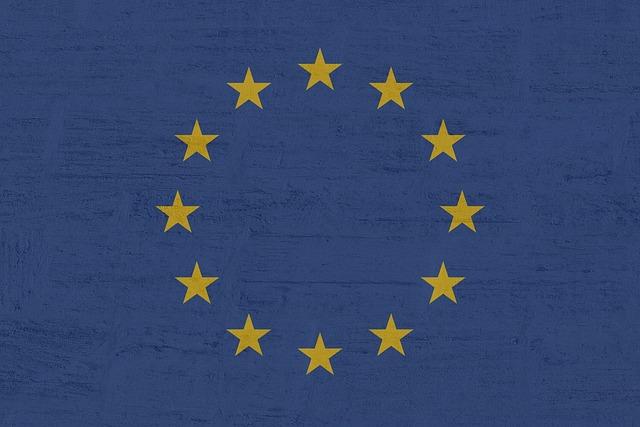In a pointed critique of the European Union’s stance on the Israel-Palestine conflict, Amnesty International has issued a scathing condemnation of EU leaders’ recent efforts to justify actions they deem genocidal against the Palestinian people. The report shines a light on what Amnesty describes as a “shameful” complicity in the face of mounting evidence of war crimes perpetrated during the ongoing violence. As tensions escalate and civilian casualties rise,the organization argues that the EU’s failure to take a principled stand could further entrench the cycle of violence and suffering. This article delves into the findings of Amnesty’s report, examining the implications for European foreign policy and the broader impact on human rights in the region.
EU Leaders Under Fire for Ignoring Human Rights Violations in Israel-Palestine Conflict
Amnesty International has condemned the recent statements made by EU leaders, labeling them as a blatant attempt to sanitize ongoing human rights violations amidst the Israel-Palestine conflict. Critics argue that the EU’s endorsement of Israel’s military actions not only undermines international law, but also reflects a disturbing dismissal of the suffering endured by Palestinian civilians. This approach seems to contradict the EU’s own principles, which emphasize the protection of human rights and the pursuit of peace, leaving manny to question the moral integrity of its foreign policy in the region.
The human rights organization pointed out several key issues in a statement, highlighting the necessity for EU leaders to take a firmer stance on the international rules governing armed conflict, notably regarding civilian protection and accountability for war crimes. Specific concerns include:
- Indifference to civilian casualties: A growing number of Palestinians have been killed in military operations, with calls for accountability increasingly ignored.
- Blockades and restrictions: The ongoing blockade of Gaza continues to exacerbate humanitarian crises, impacting access to essential services.
- Displacement and settlements: Continued expansion of Israeli settlements is leading to widespread displacement of Palestinian communities, further igniting tensions.
This troubling trend raises alarms about the potential complicity of EU leaders in perpetuating cycles of violence, ultimately undermining prospects for a peaceful resolution to the long-standing conflict.

Amnesty International’s Assessment of War crimes in Gaza: A Call for Accountability
Amnesty International’s latest report has unveiled a grave assessment of the ongoing conflict in Gaza, accentuating the severe implications of military actions that have resulted in widespread atrocities. The organization has gathered significant evidence indicating that these actions meet the criteria for war crimes, fueled by indicators of intentional attacks against civilians and the excessive use of lethal force. Key findings from their inquiry suggest that numerous incidents, including the bombing of residential buildings and the targeting of critical civilian infrastructure, represent serious violations of international humanitarian law. The findings have intensified calls for a thorough and impartial investigation into these alleged war crimes, emphasizing a need for accountability and justice for the victims.
the report criticizes European Union leaders who have sought to rationalize or downplay these violations, labeling their attempts as shameful. Amnesty International insists that such justifications not only undermine the rule of law but also erode the credibility of the EU’s commitment to human rights. To counter this trend, it is crucial for the international community, particularly European nations, to support universal jurisdiction for war crimes and to hold offenders accountable. Without concrete action,the cycle of violence and impunity is likely to perpetuate,reinforcing a climate where human rights are compromised. The following measures are essential in advocating for justice:
- Investigation: Initiate independent investigations into alleged war crimes.
- Accountability: Ensure that perpetrators are brought to justice.
- Support: Provide aid to victims and restorative justice programs.

The Political Implications of EU Support for Israel Amidst Ongoing Violence
The ongoing violence in the israeli-Palestinian conflict has engendered significant scrutiny of the European Union’s stance towards Israel,particularly considering recent statements from EU leaders. Critics, including human rights organizations like Amnesty International, argue that this tacit support serves to normalize and, in some cases, justify actions that many observers label as genocidal. It raises pivotal questions around the EU’s commitment to human rights, suggesting that political expediency often takes precedence over moral obligations. The reported prioritization of bilateral security interests over humanitarian concerns paints a troubling picture of the EU’s geopolitical calculus.
Moreover, the implications of continued EU support for Israel can ripple across international relations, potentially alienating the EU from numerous global partners who view these policies as complicity in human rights violations. The following points underscore the political ramifications of this steadfast support:
- International Reputation: The EU risks its standing as a champion of human rights and democracy.
- Public Sentiment: Growing public dissent across Europe against perceived complicity in violence against Palestinians may lead to increased political pressure on EU leaders.
- Middle Eastern Relations: Ongoing support may hinder diplomatic relations with Arab nations and the broader Muslim world.
- Future Peace Negotiations: A perceived bias could compromise the EU’s role in facilitating peace talks in the region.
In addition, the EU’s financial aid directed towards Israel can come under scrutiny.A clearer understanding of where these funds are deployed and their direct impact on the ground is urgently needed. Below is a simplified breakdown of such financial support:
| Year | Amount (€) | Purpose |
|---|---|---|
| 2021 | 300 million | Development and humanitarian aid |
| 2022 | 250 million | Military aid |
| 2023 | 320 million | Security cooperation |
This financial overview speaks volumes about the delicate balance the EU must maintain between support for Israel and accountability regarding the humanitarian crisis faced by Palestinians. Lesser-known nuances of this relationship underscore the urgent need for re-evaluation, amid rising global calls for justice and equality.

Recommendations for a Human Rights-Centric Approach to the Israel-Palestine crisis
Adopting a human rights-centric approach to the ongoing Israel-Palestine crisis necessitates a fundamental shift in how international actors engage with the situation.European leaders should prioritize the protection of human rights over political alliances and economic interests. This includes advocating for a robust accountability mechanism that addresses violations committed by all parties, particularly focusing on the systemic oppression faced by Palestinians. It is crucial to ensure that humanitarian aid is not only adequate but also distributed fairly, with an emphasis on accessibility for vulnerable populations. By listening to the voices of Palestinian civil society and prioritizing their needs, european nations can contribute to a more just resolution of the conflict.
Moreover, as part of a extensive strategy, the EU should engage in consistent diplomatic efforts that promote dialog and negotiation rather than unilateral support for military action. To facilitate this,the implementation of an EU-lead monitoring framework could serve to evaluate the human rights situation on the ground. Elements of such a framework could include:
| Action Item | Description |
|---|---|
| Establish Human Rights Monitoring | Deploy observers to report on human rights violations by both sides. |
| Promote Civil Society Engagement | Support Palestinian and Israeli civil organizations in peace-building initiatives. |
| Facilitate Humanitarian Access | Ensure unhindered access for humanitarian aid and organizations to all affected areas. |
By implementing these recommendations, the EU can assert its commitment to human rights and shift the focus from geopolitical interests to the actual well-being of those affected by the conflict. This shift is not only a moral imperative but also a pragmatic approach to fostering long-term peace and reconciliation in the region.

Public Response: Citizens Demand Action Against EU Justifications for Violence
In a wave of outrage across the continent, citizens are raising their voices against what they deem as a disgraceful defense of violence perpetrated by israeli forces, as justified by EU leaders. Demonstrators have taken to the streets, brandishing placards and chanting messages emphasizing the need for accountability and human rights. Many argue that the EU’s support sends a dangerous message, undermining international law and principles of justice.The public is demanding a clear stance from their leaders, with various actions reflecting unity among diverse communities:
- Protests in Major Cities: Large gatherings have sparked in capitals such as Berlin, Paris, and London, demanding an end to the complicity.
- Social Media Campaigns: Hashtags like #StandWithPalestine have trended globally, showcasing widespread discontent.
- open Letters and Petitions: Thousands of citizens have signed petitions calling for EU officials to reconsider their approach.
Engagement from everyday citizens has been pivotal in amplifying their demands for justice. Many are urging local parliament members to convey these sentiments directly within EU chambers, where policies are crafted. A rapid glance at public sentiment reveals a stark disapproval of the current EU stance on the issue:
| Public Opinion | Percentage |
|---|---|
| Support for Palestinian Rights | 78% |
| Opposition to EU Silence | 85% |
| Demand for Sanctions | 63% |
The data reflects a community rallying around the call for justice, as citizens assert that diplomatic doublespeak must transform into robust actions. As they mobilize, the pressure mounts on EU leaders to prioritize ethical considerations and human dignity over political expediencies.

The Path Forward: Reassessing EU Foreign Policy in Light of Humanitarian Principles
The ongoing humanitarian crisis in Palestine has brought EU foreign policy under intense scrutiny, revealing a stark divergence between proclaimed humanitarian principles and political expediency. The recent statements from EU leaders, characterized as ’shameful’ by organizations such as Amnesty International, suggest a willingness to overlook, or even justify, grave violations of international law in the name of geopolitical alliances. This misalignment raises critical questions about the role of the EU in promoting a values-based foreign policy, particularly concerning human rights and humanitarian obligations. Some key areas of concern include:
- The principle of neutrality: How can the EU advocate for peace while failing to hold accountable those accused of war crimes?
- Accountability mechanisms: Are current EU policies equipped to enforce human rights standards adequately?
- Solidarity with victims: How does the EU prioritize its humanitarian responsibilities to the Palestinian people?
In reconsidering its diplomatic strategies, the EU must realign its actions with foundational principles of justice and integrity. To create a sustainable and ethical approach to international relations, the EU should undertake a comprehensive reassessment of its foreign policies regarding conflicts that deeply affect civilian populations. A focused effort could entail the establishment of a new framework for accountability which might include:
| Proposed measures | Expected Outcomes |
|---|---|
| Enhancing Diplomatic Engagement | Fosters open dialogue and trust-building initiatives to resolve conflicts. |
| Implementing Sanctions on Violators | deters future breaches of international humanitarian law. |
| Strengthening NGOs | Increases capacity for on-the-ground humanitarian initiatives. |
Closing Remarks
the recent statements by EU leaders, as highlighted by Amnesty International, underscore a troubling complicity in the ongoing violence faced by Palestinians. This lack of accountability not only raises ethical concerns but also signals a deeper disconnection from humanitarian principles that should guide international relations. As the situation in the region continues to escalate, it is imperative that European leaders reassess their positions and prioritize a commitment to justice and human rights over political expediency. The call for an immediate and thorough examination of the actions taken against Palestinian civilians is not merely a matter of rhetoric; it is indeed a crucial step toward rebuilding trust and fostering a path toward lasting peace. as the international community watches closely, the time for meaningful action and unequivocal support for human rights is now—anything less may perpetuate a cycle of violence and suffering that challenges the very core of European values.















